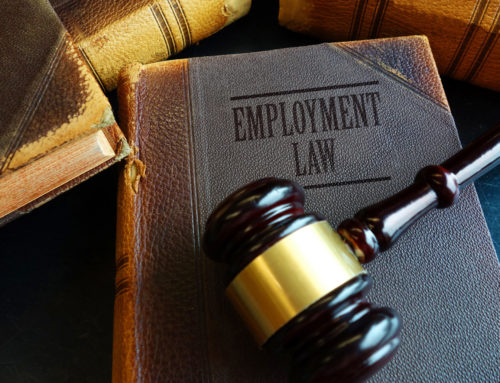What are employers obligations during COVID-19
Section 8 of the Occupational Health and Safety Act, 1996 (OHSA) provides that every employer is obliged to provide and maintain, as far as reasonably practicable, a working environment that is safe and without risks of its employees. Employers must take such steps as may be reasonably practicable to eliminate or mitigate any hazard or potential hazard to the safety or health of employees, before resorting to personal protective equipment, they must provide such information, instructions, training and supervision as may be necessary to ensure, as far as reasonably practicable the health and safety at work of its employees.
In terms of section 14(d) of OHSA, if an employee becomes aware of a situation that is unsafe or unhealthy, s/he must report such a situation to the employer as soon as practicable. This includes any suspicion, in the circumstances that we all now face, that a fellow employee, client or other person exhibits flu-like symptoms or is running a fever.
In terms of the OHSA General Safety Regulations, an employer may not permit a person to enter a workplace where the health or safety of such person is at risk or may be at risk unless the person enters the workplace with the express or implied permission of and subject to the conditions laid down by the employer.
An employer is entitled to post a notice on its premises, if necessary in the interests of health and safety, prohibiting the entry of unauthorised persons, and no person may enter or remain at the premises without the permission of the employer.
These provisions entitle employers to impose rules for entry into their premises in order to ensure health and safety, and they may legitimately exclude persons who do not abide by these rules from entering the workplace.
In the light of Covid-19, a legitimate requirement for entry may be requiring the disclosure of recent international travel and if so, subjecting the individual concerned to a temperature test. The privacy of the individual should be respected in conducting the test, and this must be done with the individual’s informed consent. Consent does not need to be given in writing, but it is advisable to obtain written consent for purposes of proof. The manner in which the test is conducted must be as non-invasive as possible, and temperature screeners, as opposed to thermometers placed in one’s ear or mouth, are recommended.
If the individual objects to the test, the employer may then legitimately rely on other relevant information at its disposal (e.g. excessive sneezing, coughing, whether the person has recently travelled to a location where Covid-19 incidents have been reported, etc.) to determine whether or not to allow the person concerned into the premises.
The Environmental Regulations issued in terms of OHSA provide, inter alia, that the employer must ensure that the premises are ventilated in such a way that the air breathed by the employees does not endanger their safety. Where there is a danger of unsafe air, the employer must provide the employees (and must ensure that they correctly use) respiratory protective equipment of a type that reduces the exposure to the employee to a safe level. Businesses are therefore required to ensure that the air-conditioning systems at their premises do not expose the employees to the risk of infection.
In terms of the Facilities Regulations issued in terms of OHSA, employers must provide sanitary facilities in accordance with the National Building Regulations and, importantly:
• provide soap or a similar cleansing agent free of charge to its employees.
While this must be provided in the sanitary facilities, it is advisable to make tissues and hand sanitizers available in boardrooms and other public spaces at the workplace;
• provide running hot and cold water (or pre-mixed hot and cold water) for
washbasins; and
maintain all rooms and facilities in a clean, hygienic, safe, whole and leak-free condition.






